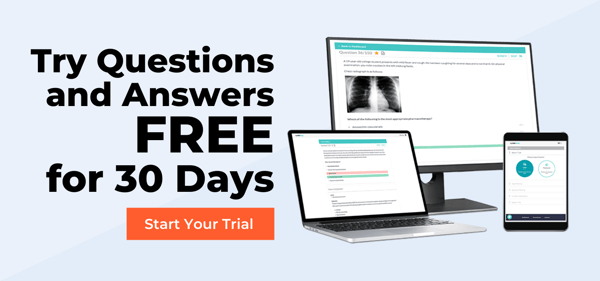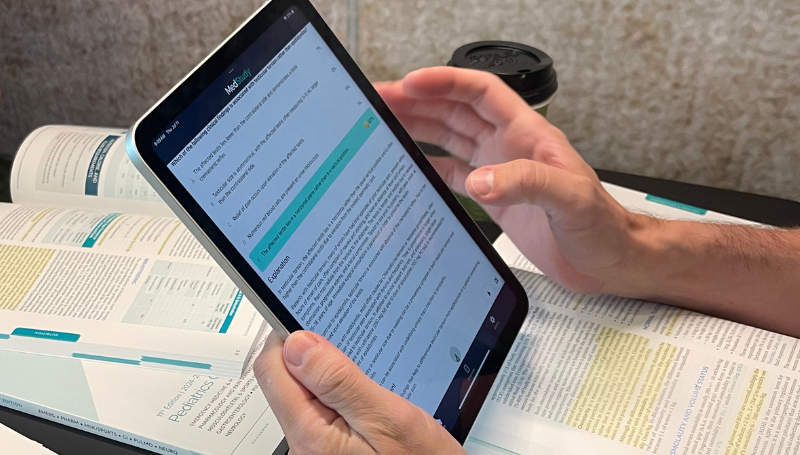
We've said it before, and we'll say it again: Self-testing is the most effective, science-backed way to learn medicine and ace your boards.
Practicing recall of board-relevant pediatrics information while you’re self-testing will help you remember up to 50% more than re-reading the information alone.
It’s also important to practice using the same format as the actual exam. That’s why we created our Pediatrics Qbank+ to help you build recall of essential board-relevant facts and get comfortable with the exam format.
Here’s how to make your own ABP self-assessment in myMedStudy with your Qbank+:
Start your ABP self-assessment in test mode
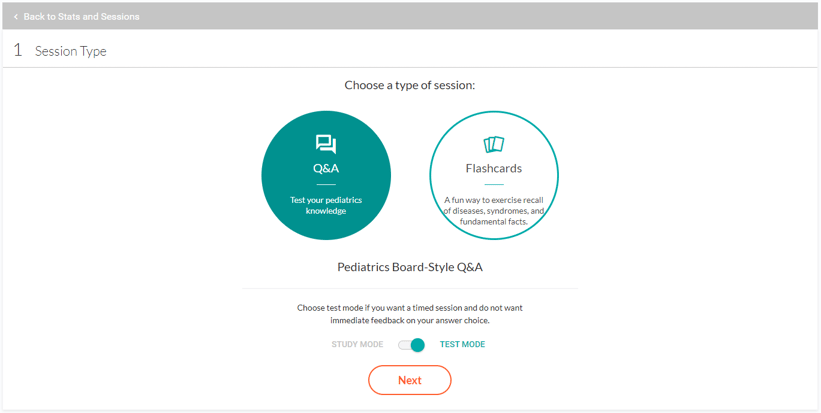 Choose between study mode or test mode when you set up your Qbank+ session.
Choose between study mode or test mode when you set up your Qbank+ session.
From the Qbank+ tab in your myMedStudy account, click "Create New Session." When you set up your Qbank+ session, you can choose between test mode or study mode.
For a realistic ABP self-assessment, we recommend choosing test mode for the timed option. This way, you’ll have a running timer just like you will during the actual exam, and you won’t get any feedback on your answers until after you submit the test.
Cover topics you’ll see on your board exam
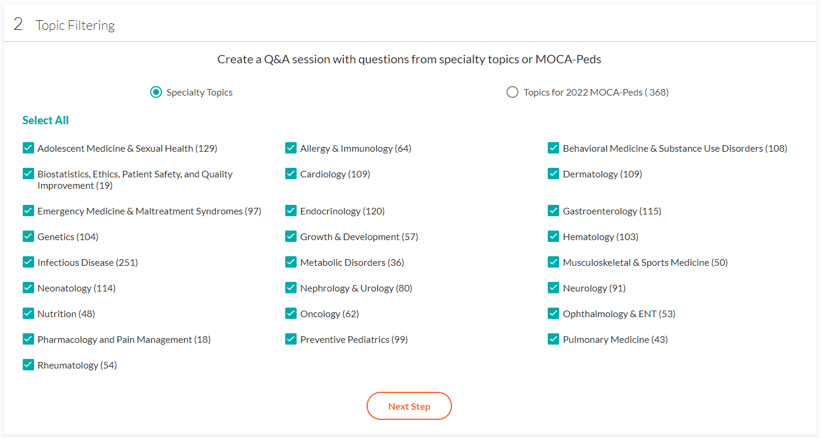 Choose topics to cover on your practice ABP self-assessment.
Choose topics to cover on your practice ABP self-assessment.
Set up filters to choose what topics you cover in your practice test. If you want to set up your ABP self-assessment test like your board exam, you can click ‘Select All’ to randomize questions from every topic throughout your practice exam.
Set the time and number of questions for your practice test
Choose the number of questions and duration for a realistic ABP self-assessment test.
Choose how many questions you want to answer in your session and how much time you want to spend.
You will answer 330-350 multiple-choice, single-best-answer questions during the ABP General Pediatrics Certifying Exam. So set up your own ABP self-assessment test session by choosing a session of about 100 questions and a test duration of at least 3 hours.
Analyze your results
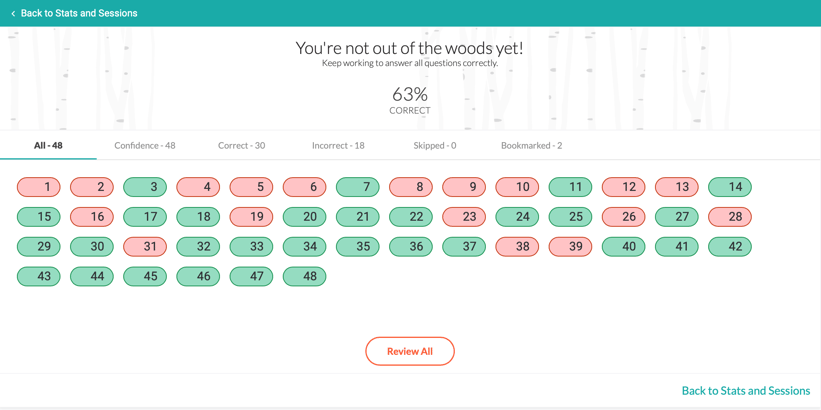 We'll generate a report of your results on your ABP self-assessment test for you.
We'll generate a report of your results on your ABP self-assessment test for you.
After you submit your test, you can see a report of your overall performance, what questions you answered correctly, incorrectly, as well as any that you skipped or bookmarked. You can go back and review any of these questions to see the correct answers and explanations.
Then, quickly fill any knowledge gaps by digging deeper into explanations. Our online learning tools are interlinked so you can save time switching between study formats. Click on the link at the end of the explanation to instantly jump to the relevant content in the Core.
Review all the answers that you missed and make sure you understand what you got wrong. Take another test set up the same way at a later date so you can identify sections that require further review and gauge your progress.
How often should you set up ABP self-assessment?
We recommend that you self-test periodically throughout your board prep sessions and ramp it up the last few months before your board exam. This will ensure a strong knowledge base of information that is easily recalled during your exam and even in daily practice.
Get 12 months of access to our Pediatrics Qbank+ or start a free trial now to begin self-testing now and build confidence for your upcoming ABP exam.



